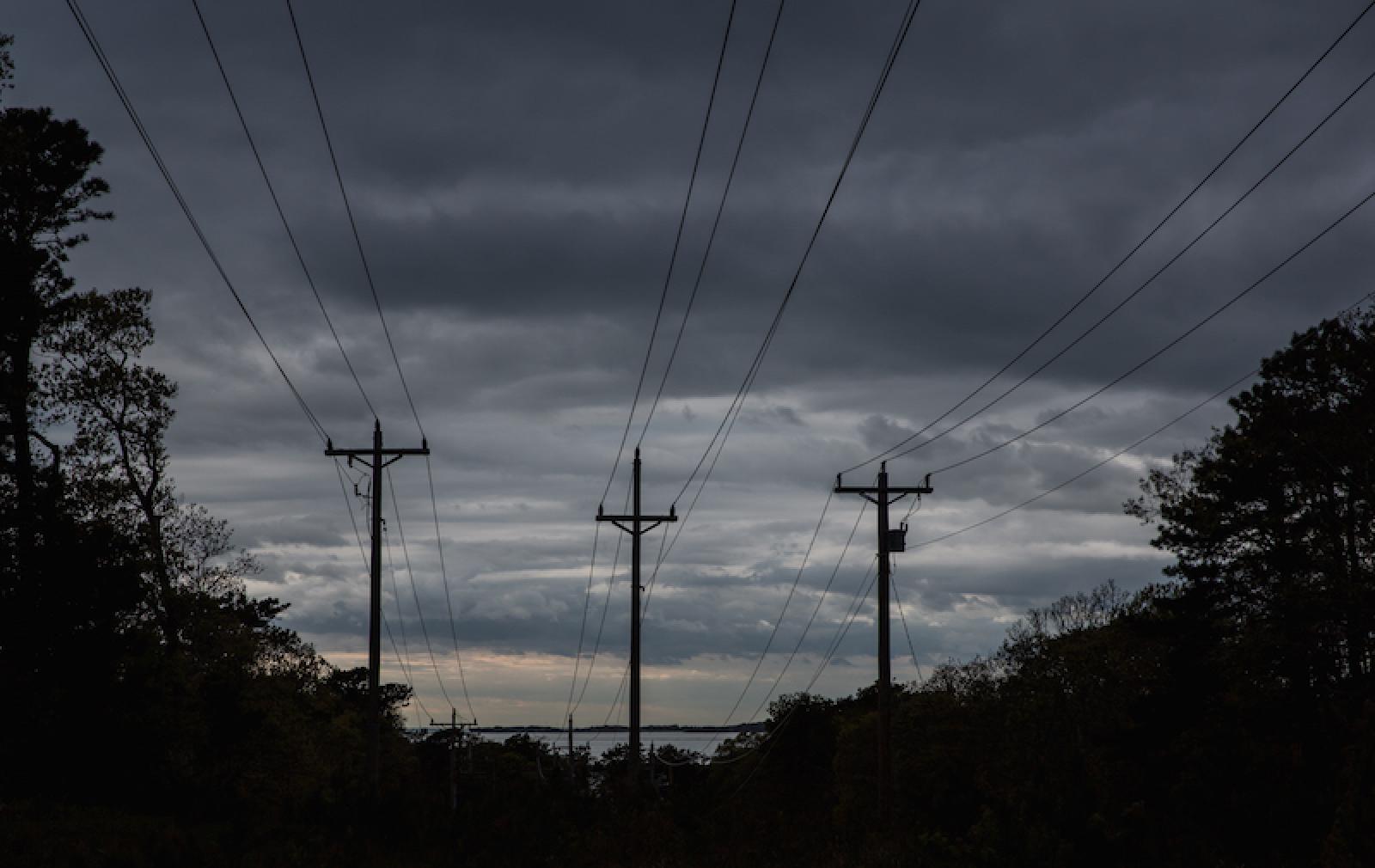Edgartown selectmen this week backed off an idea to send a letter of concern to Eversource after the town conservation agent shared more information about the utility company’s plans to use herbicides under power lines on the Vineyard.
Earlier this month a state board voted not to issue a one-year moratorium on spraying in the region amid strong opposition to herbicide use on the Cape and Vineyard.
On Monday selectman Arthur Smadbeck asked if the board should sent a letter to Eversource asking for a meeting, noting widespread community concern. “I’d like to know if there isn’t another mechanism that this could be done, certainly they haven’t been spraying herbicides forever and ever,” he said, adding: “I’d like to send them a very respectful letter asking them to engage with us in a discussion before they start spraying herbicides that many people in this community don’t want to see happen.”
Town conservation agent Jane Varkonda said she had researched concerns about the herbicide and the Eversource project, and said she was okay with selective applications to control plant growth under power lines.
Utility companies are required by federal law to make sure trees do not interfere with the transmission of electricity, Mrs. Varkonda said.
She said that on the Vineyard, herbicide spraying would take place under the main transmission line, which goes through Vineyard Haven and Oak Bluffs and a fire lane in the state forest, ending at a parking lot in Edgartown, on the Edgartown-West Tisbury Road. The fire lane used to be mowed mechanically by the Department of Conservation and Recreation until Eversource took over the company from NStar, Mrs. Varkonda said.
Eversource uses Rodeo, an herbicide with the active ingredient glyphosate, which is used to kill plants. Ms. Varkonda said the utility company would treat trees over 15 feet tall, and invasive species would be targeted with low-pressure backpack pumps. She said the company plans to treat areas every three to five years.
She said a European Union report that said glyphosate was considered a carcinogen was followed by another report that concluded the product was unlikely to have a carcinogenic effect. “There’s been a lot of research done on this,” she said. “They’re pretty much sure it interferes with amino acids in plants so it cannot photosynthesis and dies . . . it doesn’t bind to the soil, it doesn’t seem to leach out.”
The project was reviewed by the state National Heritage program and the Department of Environmental Protection, she said, adding that she understood the concerns.
“I just know, particularly on the Cape and Islands, there’s just a sensitivity to any kind of chemical,” she said.
Selectmen said they felt reassured. “If they stick to that . . . it’s a contact killer,” said Michael Donaroma, a landscaper.
“I just wanted to bring it up as a possible issue,” Mr. Smadbeck said.
In other business, selectmen approved requests from 19 Raw Oyster Bar and Rosewater Wine and Spirits to change business hours, and a request from Alchemy to close between Jan. 1 and Feb. 1 for maintenance and repairs.





Comments (10)
Comments
Comment policy »